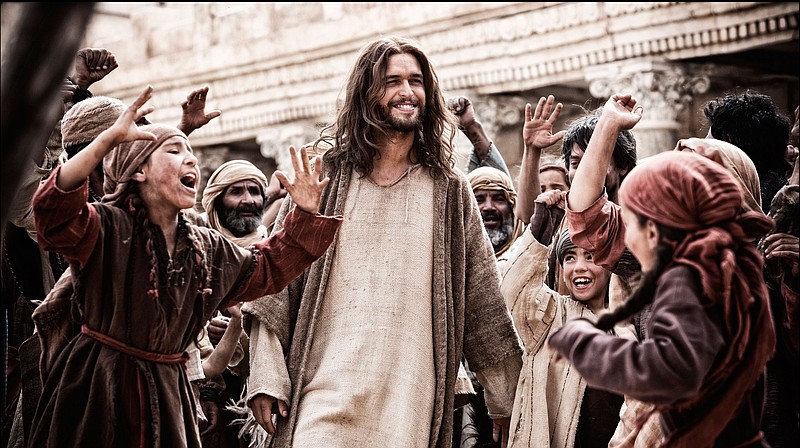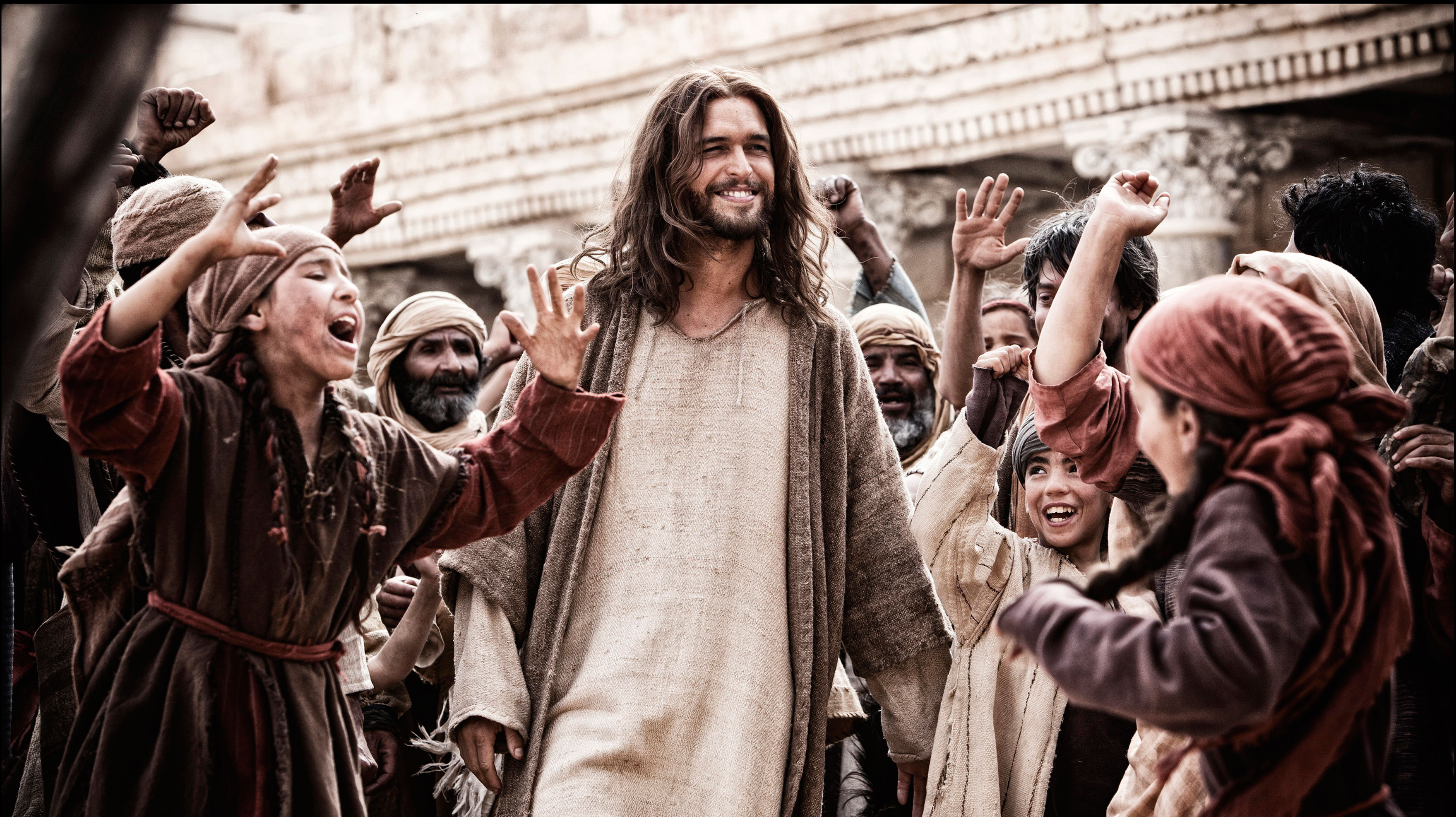Producer Mark Burnett and his actress-producer wife Roma Downey are not just show business people. And not just Christians, Downey points out.
"We're very noisy Christians. With good intentions."
That's how she explains their involvement in putting "The Bible" together for The History Channel. And that's why they culled footage from that series and shot additional scenes to flesh out the story of Jesus for "Son of God," a faith-based life of Jesus film that hits theaters Friday.
"We believe this story and we believe that it will add value to the planet, that it will uplift and inspire, as it always has," says Downey ("Touched by an Angel"), who also plays Mary, mother of Jesus, in the film. "We were tired of cursing the darkness, and wanted to create projects that added light to the world."
It's been 50 years since "The Greatest Story Ever Told," 35 years since "Jesus" and a decade since "The Passion of the Christ." Burnett, best known for TV's "Survivor," thinks the time is right for a feature film about Jesus of Nazareth. He wanted to humanize Jesus for the series and for the film, to go beyond the horrors of the crucifixion, which was the focus of Mel Gibson's blockbuster "Passion."
"In 'The Passion,' he gets arrested on his knees, in Gethsemane," Burnett says. "If you don't know his story, you haven't had time to fall in love with the character. That's what we wanted to show, this guy kids just loved, this smiling, kind man with all this love about him. He had a sense of humor, so I saw him as a real guy, in addition to being God. You feel the humanity and the divinity in him. It's a tough thing to try to show."
They cast Portuguese actor Diogo Morgado as Jesus. He decided to tackle this as "just another role." But that reasoning, he says, "was out of fear." He was afraid of messing up.
"At some point, I realized it wasn't acting skill alone wasn't going to help me play a person who is still so alive to billions of people, the world over," Morgado says. "Jesus isn't a role. If you grew up Christian, as I did, it becomes a mission, a task that you must do, and a burden, because so many people know him."
For her part, Downey considered daily prayer the way she got her "game face" on as Mary, each morning.
Burnett wanted to capture the political thriller aspects of the story, as those entrenched in the power structure of ancient Jerusalem scheme to convince the Roman occupiers to get rid of this troublemaker in their midst. But Burnett knew that, intrigues aside, Gibson's "The Passion of the Christ" raised the bar on how the last days of Jesus are depicted - the excruciating violence of his death.
"We realized you cannot minimize the horror of that," Burnett says. "Millions of human beings have died for this faith, martyred because they refused to deny their faith. You get that wrong, it's 'game over,' in the eyes of a lot of church leaders and the faithful.
"But we didn't make it as graphic as Mel Gibson did. We show you Mary's reaction as the nail is pounded into his hand. You don't need to see the nail penetrate the skin. We got a PG-13, which was a relief. Because that is a terribly violent way to die."
And one should never end a "Life of Jesus" picture with his death on the cross, Downey insists. "If you don't show the Resurrection, you don't realize that's just the beginning of the story. It's a big part of what is so uplifting, hopeful, inspiring about him."
To defuse potential complaints about the project, they ran the film by more than 40 religious denominations, from Christian evangelicals to Jewish theologians. "There are no stereotypes or caricatures in our film," Burnett declares - a major criticism of Gibson's 2004 film.
And Burnett is fulsome in his praise of the British TV documentary crew he used to shoot the series and the feature film, detail-oriented history buffs who "made sure that nothing, NOTHING looks out of place in our version of ancient Israel."
It's almost mean to bring it up, with their sincerity and good intentions and all. But, Mr. Burnett, you've got Pontius Pilate riding a horse into Jerusalem.
He's got stirrups on the horse. The Romans didn't saddle up with stirrups for at least 100 years.
"Listen," Burnett says, laughing, "Greg Hicks (who plays Pilate), marvelous actor. But we don't put stirrups on his horse, he doesn't STAY on that horse. So that detail, yeah. We got it wrong. To save the actor."

